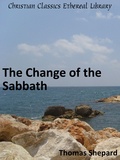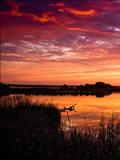Thomas Shepard
American Puritan minister
Biography
Shepard was born in Towcester, England, 5 November, 1605 and died in Cambridge, Massachusetts, 25 August, 1649. He was graduated at Oxford in 1627, ordained in the established church, and in 1630 silenced for non-conformity. He was subsequently tutor and chaplain in the family of Sir Richard Darby, whose cousin he married. He was silenced again in 1633, and in October, 1635, sailed for America, settled in Boston, and from that time till his death was pastor of the church in Cambridge, succeeding Thomas Hooker.
He soon became involved in the Antinomian controversy, actively opposed the innovators, and was a member of the synod that silenced them. His second wife, Joanna, whom he married in 1637, was the daughter of Thomas Hooker. He was active in founding Harvard, and instrumental in placing it at Cambridge. Nathaniel Morton, the historian, says of him: "By his death not only the church and people of Cambridge, but all New England, suffered a great loss." By his third wife, Margaret Boradel, he was the ancestor of President John Q. Adams.
He was a vigorous and popular writer on theological subjects, and published New England's Lamentations for Old England's Errors(London, 1645) ; The Clear Sunshine of the Gospel Breaking out on the Indians of New England (1648; New York, 1865) ; Theses Sabbatica (1649) ; and left in manuscript numerous sermons that were subsequently printed in England. These include Subjection to Christ,with a memoir of him by Samuel Mather and William Greenhill (London, 1652), and The Parables of the Ten Virgins and other Sermons(1660; new ed., Aberdeen, 1638). His autobiography was published (Cambridge, Massachusetts, 1832), and his collected works, with a memoir of him by Reverend Horatio Alger (3 vols., Boston, 1853). Cotton Mather also wrote his memoir in the Magnalia, and in his Lives of the Chief Fathers of New England.

